Venezuela says it is ready to pay Holcim
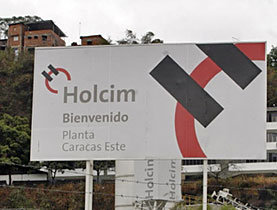
Venezuela has agreed to make a $378 million (SFr410 million) payment for nationalising two European cement companies last year, including Switzerland's Holcim.
The world’s second-largest cement maker announced on Friday that it was selling its holdings in Panama and the Caribbean to joint venture partner Argos as a direct result of the takeover.
Venezuelan President Hugo Chavez had forced Holcim to hand over 85 per cent of its Venezuelan subsidiary in June 2008 for a knockdown price of $552 million. The government then stalled on making any payments and cut off communication.
In March 2009 Holcim said it had lost its patience and would seek “substantially greater” compensation – the full-market price – at the International Centre for Settlement of Investment Disputes (ICSID) in Washington, DC.
On Thursday, Diosdado Cabello, Venezuela’s infrastructure minister, said the government would make initial payments worth 40 per cent of the bargain prices to Holcim and to Paris-based Lafarge, another cement maker that had its assets nationalised. That means Holcim would receive about $220 million.
The balance would be paid over the next four years, Cabello told state-run television. It was unclear when the first installment would be made.
Not convinced
Holcim spokesman Peter Gysel told swissinfo.ch on Friday that the cement maker was still moving forward with its arbitration case in court. He said he could not provide more details while the suit was pending.
Gysel said he was not aware of any Venezuelan authorities who had approached Holcim about the payment and that the company had heard about the development through the news.
Holcim is arguing in court that Venezuela has broken a 1993 bilateral agreement with Switzerland that obliges each country to protect the investments of the others that are based in its territory.
In an earlier interview, a company spokesman said “time would tell” whether the South American country would participate in the international arbitration process.
As part of a sweeping campaign to nationalise key private-sector industries, Chavez announced he would seize corporations that deal in metals, oils and electricity. In December 2008, Mexico’s Cemex also begun international arbitration proceedings against Venezuela.
Jettisoning stakes
The payments, if they occur, could bring a modicum of relief for Holcim, which has been languishing in the economic downturn. Operating profit for the first quarter of 2009 fell to SFr343 million ($316 million), down 53.5 per cent from SFr737 million for the same quarter last year.
Net income was down 80 per cent from the first quarter of 2008 to SFr74 million. Net sales totaled SFr4.52 billion, a drop of 18 per cent. Profits fell 54 per cent in 2008.
Chavez’s nationalisation campaign has further hobbled the cement maker. On Friday company officials said they would sell shares in businesses in Panama and the Caribbean to its joint-venture partner, Argos, for $157 million.
“As a consequence of the nationalisation of Holcim Venezuela, the long-term economics of supplying Holcim-produced clinker and cement to the grinding stations and terminals in Panama and the Caribbean is no longer viable,” the company said in a statement.
The holdings had contributed SFr107 million to Holcim coffers in 2008.
Holcim, founded in Switzerland in 1912, is the world’s second-largest cement maker after Lafarge. It employs 83,000 people and has production sites in more than 70 countries.
swissinfo.ch and agencies
Venezuela embarked on a course of state nationalisation of key industries shortly after socialist president Hugo Chávez assumed power in 1999.
Starting with the oil industry – the country’s major revenue stream – Chávez has shifted his attention to other sectors in recent years.
After winning re-election in 2006, Chávez proclaimed: “Everything that was privatised will be nationalised.” The first industries to fall under this renewed wave of nationalisation were telecommunications and utilities, but his attention soon turned to firms he accused of contributing to food shortages.
Last year Holcim and other cement makers were told to hand over their Venezuelan subsidiaries.
After winning a referendum in February to do away with presidential term limits – allowing Chávez to rule indefinitely – he announced plans to take over Cargill, the world’s largest trader of agricultural commodities.
The country’s biggest remaining private company, Polar, a manufacturer of food brands, was also targeted in February.
During the first nine months of 2008, Switzerland exported more than SFr200 million of goods to Venezuela and imported goods to the value of SFr53 million. Swiss companies employ more than 10,000 people in Venezuela.

In compliance with the JTI standards
More: SWI swissinfo.ch certified by the Journalism Trust Initiative
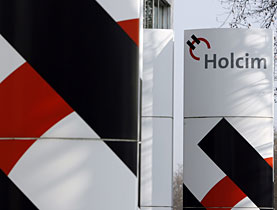
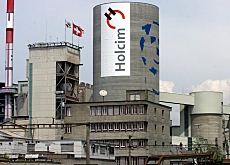
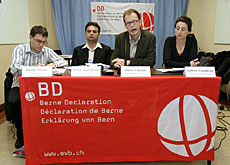
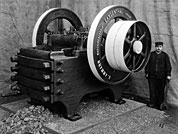
You can find an overview of ongoing debates with our journalists here. Please join us!
If you want to start a conversation about a topic raised in this article or want to report factual errors, email us at english@swissinfo.ch.